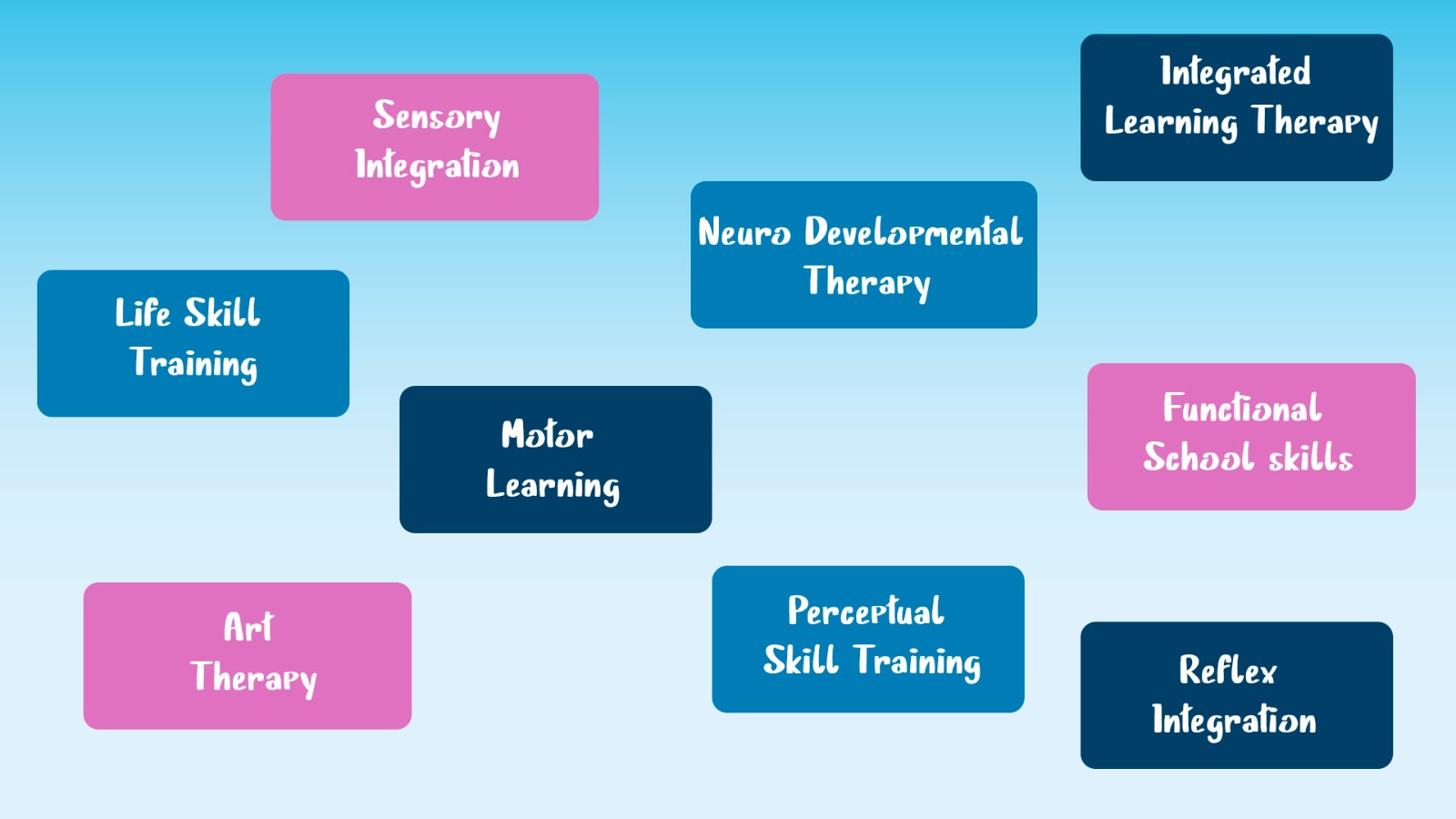Who will benefit:
Students with physical, sensory or cognitive problems who are looking at increasing independence in daily tasks, improving academic performance and overcome physical challenges.

About Occupational therapy:
Occupational therapy practitioners work with children, youth, and their families to promote active participation in activities or occupations that are meaningful to them. Occupation refers to activities that may support the health, well-being, and development of an individual (AOTA, 2008). For children and youth, occupations are activities that enable them to learn and develop life skills (e.g., school activities), be creative and/or derive enjoyment (e.g., play), and thrive (e.g., self-care and care for others) as both a means and an end...
Occupational therapy practitioners work with children of all ages (birth through young adulthood) and abilities. Recommended interventions are based on a thorough understanding of typical development and the impact of disability, illness, and impairment on the individual child’s development, play, learning, and overall occupational performance.
Occupational therapy practitioners provide services by collaborating with other professionals to identify and meet needs of children experiencing delays or challenges in development; identifying and modifying or overcoming barriers that interfere with, restrict, or inhibit a child’s functional performance; teaching and modeling skills and strategies to children and their families to extend therapeutic intervention; and adapting activities, materials, and environmental conditions so children can participate under different conditions and in various environments.
